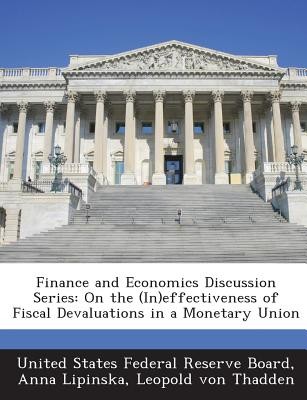
- We will send in 10–14 business days.
- Author: Anna Lipinska
- Publisher: Bibliogov
- ISBN-10: 1288699417
- ISBN-13: 9781288699414
- Format: 18.9 x 24.6 x 0.3 cm, minkšti viršeliai
- Language: English
- SAVE -10% with code: EXTRA
Reviews
Description
This paper explores the fiscal devaluation hypothesis in a model of a monetary union characterised by national fiscal policies and supranational monetary policy. We show that a unilateral tax shift towards indirect taxes in one of the countries produces small but non-negligible long run effects on output and consumption within and between the two countries only when international financial markets are perfectly integrated. In contrast to the existing literature, we find that short-run effects are not always amplified by nominal wage rigidities. We document also how short-run effects of the tax shift depend on the choice of the inflation index stabilized by the central bank and on whether the tax shift is anticipated.
EXTRA 10 % discount with code: EXTRA
The promotion ends in 22d.19:55:23
The discount code is valid when purchasing from 10 €. Discounts do not stack.
- Author: Anna Lipinska
- Publisher: Bibliogov
- ISBN-10: 1288699417
- ISBN-13: 9781288699414
- Format: 18.9 x 24.6 x 0.3 cm, minkšti viršeliai
- Language: English English
This paper explores the fiscal devaluation hypothesis in a model of a monetary union characterised by national fiscal policies and supranational monetary policy. We show that a unilateral tax shift towards indirect taxes in one of the countries produces small but non-negligible long run effects on output and consumption within and between the two countries only when international financial markets are perfectly integrated. In contrast to the existing literature, we find that short-run effects are not always amplified by nominal wage rigidities. We document also how short-run effects of the tax shift depend on the choice of the inflation index stabilized by the central bank and on whether the tax shift is anticipated.


Reviews